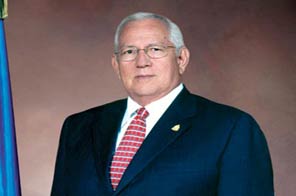US ups pressure on Honduras
OCOTAL: The United States on Tuesday upped pressure on the interim leaders of Honduras, as ousted President Manuel Zelaya remained defiant in Nicaragua one month after the army sent him away.
The United States is currently reviewing the diplomatic visas for a number of interim government members and "has revoked visas to four such individuals," State Department spokesman Ian Kelly told reporters in Washington.
"We don't recognize Roberto Micheletti as the president of Honduras," he added when asked why Washington took the measure.
But Kelly rejected the notion that the revocation of visas amounted to ratcheting up pressure on the interim leadership.
"I don't think I would characterize it that way," the spokesman said. "But what we are doing is we're trying to do everything that we can to support this... process that was begun by Costa Rican President (Oscar) Arias and the negotiation efforts.
Rather, he said, the move was "consistent with our policy of the non-recognition of the de facto" regime."
Zelaya has said the Costa Rica talks have failed and ruled out further negotiations.
The Honduran Congress on Monday set up a commission to study the peace accord proposed by Arias, which calls for Zelaya to be restored to power, but with various limits.
The interim leaders have welcomed parts of the Arias plan but rejected Zelaya's return as president, as has the military.
After international condemnation, aid freezes and stalled peace talks, Zelaya said from exile in Nicaragua that the military coup on June 28, which was backed by the Honduran courts and Congress, had failed.
"I think we've learned the lesson that imposition and force can't be used in any country in the world," Zelaya said late Monday.
Across the border in Honduras, Zelaya's family members headed Tuesday toward Nicaragua, after the cowboy-hatted exiled president suggested he would meet them for the first time in one month.
Zelaya, who has been joined by some supporters in Nicaragua, said he would make several incursions into mountainous border areas, but it was unclear if he would make a third attempt to cross into Honduras.
Tension remained high in border areas, with Honduran soldiers ordered to arrest Zelaya if he enters the country, and after a days-long curfew disrupted life on the Honduran side.
The United States has urged Zelaya and those who toppled him to show restraint after his second tense attempt to return home on Friday, while Costa Rica pursued mediation efforts to end the standoff.
Zelaya, a former rancher who veered to the left after taking office under the influence of Venezuelan President Hugo Chavez, was ousted amid fears he sought to extend his rule through a referendum on the Constitution.






